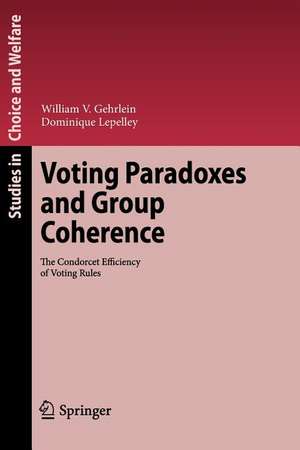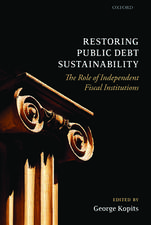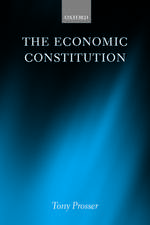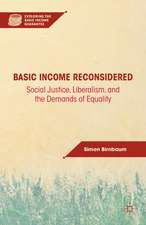Voting Paradoxes and Group Coherence: The Condorcet Efficiency of Voting Rules: Studies in Choice and Welfare
Autor William V. Gehrlein, Dominique Lepelleyen Limba Engleză Paperback – 2 ian 2013
| Toate formatele și edițiile | Preț | Express |
|---|---|---|
| Paperback (1) | 786.04 lei 6-8 săpt. | |
| Springer Berlin, Heidelberg – 2 ian 2013 | 786.04 lei 6-8 săpt. | |
| Hardback (1) | 792.19 lei 6-8 săpt. | |
| Springer Berlin, Heidelberg – 25 noi 2010 | 792.19 lei 6-8 săpt. |
Din seria Studies in Choice and Welfare
- 24%
 Preț: 946.18 lei
Preț: 946.18 lei - 13%
 Preț: 356.37 lei
Preț: 356.37 lei - 15%
 Preț: 693.25 lei
Preț: 693.25 lei - 15%
 Preț: 644.95 lei
Preț: 644.95 lei - 18%
 Preț: 1012.84 lei
Preț: 1012.84 lei - 15%
 Preț: 647.27 lei
Preț: 647.27 lei - 18%
 Preț: 1002.31 lei
Preț: 1002.31 lei - 18%
 Preț: 947.98 lei
Preț: 947.98 lei - 20%
 Preț: 566.19 lei
Preț: 566.19 lei - 18%
 Preț: 1117.50 lei
Preț: 1117.50 lei - 15%
 Preț: 690.94 lei
Preț: 690.94 lei - 18%
 Preț: 964.71 lei
Preț: 964.71 lei - 15%
 Preț: 652.17 lei
Preț: 652.17 lei - 15%
 Preț: 651.19 lei
Preț: 651.19 lei - 18%
 Preț: 740.25 lei
Preț: 740.25 lei - 18%
 Preț: 726.69 lei
Preț: 726.69 lei - 24%
 Preț: 585.34 lei
Preț: 585.34 lei - 15%
 Preț: 695.70 lei
Preț: 695.70 lei - 18%
 Preț: 1005.43 lei
Preț: 1005.43 lei - 18%
 Preț: 946.72 lei
Preț: 946.72 lei - 18%
 Preț: 1120.18 lei
Preț: 1120.18 lei - 15%
 Preț: 643.65 lei
Preț: 643.65 lei
Preț: 786.04 lei
Preț vechi: 958.59 lei
-18% Nou
Puncte Express: 1179
Preț estimativ în valută:
150.41€ • 157.36$ • 124.95£
150.41€ • 157.36$ • 124.95£
Carte tipărită la comandă
Livrare economică 03-17 aprilie
Preluare comenzi: 021 569.72.76
Specificații
ISBN-13: 9783642266102
ISBN-10: 364226610X
Pagini: 400
Ilustrații: XII, 385 p.
Dimensiuni: 155 x 235 x 21 mm
Greutate: 0.56 kg
Ediția:2011
Editura: Springer Berlin, Heidelberg
Colecția Springer
Seria Studies in Choice and Welfare
Locul publicării:Berlin, Heidelberg, Germany
ISBN-10: 364226610X
Pagini: 400
Ilustrații: XII, 385 p.
Dimensiuni: 155 x 235 x 21 mm
Greutate: 0.56 kg
Ediția:2011
Editura: Springer Berlin, Heidelberg
Colecția Springer
Seria Studies in Choice and Welfare
Locul publicării:Berlin, Heidelberg, Germany
Public țintă
ResearchCuprins
Voting Paradoxes and Their Probabilities.- Condorcet's Paradox and Group Coherence.- Other Incompability Paradoxes.- Other Voting Paradoxes.- Condorcet Efficiency and Social Homogeneity.- Coherence and the Efficiency Hypothesis.- Other Characteristics of Voting Rules.- The Significance of Voting Rule Selection.- Complete PMR Ranking Efficiencies.
Recenzii
From the reviews:
“This book bridges the gap between the theoretical literature showing the possibility of counterintuitive results and the empirical findings of many experiments in which these counterintuitive results hardly or not at all appear. This is a very well written book, extremely rich in information, integrating many existing and new results and with an impressive number of references to the literature. It is an important and relevant step forward in the Theory of Social Choice, highly recommended to anyone interested in this field.” (H. C. M. de Swart, Zentralblatt MATH, Vol. 1252, 2012)
“This book bridges the gap between the theoretical literature showing the possibility of counterintuitive results and the empirical findings of many experiments in which these counterintuitive results hardly or not at all appear. This is a very well written book, extremely rich in information, integrating many existing and new results and with an impressive number of references to the literature. It is an important and relevant step forward in the Theory of Social Choice, highly recommended to anyone interested in this field.” (H. C. M. de Swart, Zentralblatt MATH, Vol. 1252, 2012)
Textul de pe ultima copertă
The likelihood of observing Condorcet's Paradox is known to be very low for elections with a small number of candidates if voters’ preferences on candidates reflect any significant degree of a number of different measures of mutual coherence. This reinforces the intuitive notion that strange election outcomes should become less likely as voters’ preferences become more mutually coherent. Similar analysis is used here to indicate that this notion is valid for most, but not all, other voting paradoxes. This study also focuses on the Condorcet Criterion, which states that the pairwise majority rule winner should be chosen as the election winner, if one exists. Representations for the Condorcet Efficiency of the most common voting rules are obtained here as a function of various measures of the degree of mutual coherence of voters’ preferences. An analysis of the Condorcet Efficiency representations that are obtained yields strong support for using Borda Rule.
Caracteristici
Examines the probability that voting paradoxes will be observed in elections Applies formal mathematical probability models to the analysis of voting rules With a focus on the Condorcet criterion Includes supplementary material: sn.pub/extras













